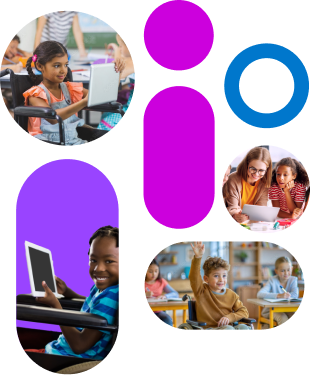Q&A with Ayan Kishore, Benetech CEO
[inline_module class_name=’Benetech__Image’ instance=’0′]
Benetech’s CEO, Ayan Kishore, brings a wealth of experience in tech and the social sector. In this illuminating interview, he discusses what brought him to Benetech and the opportunity that he sees to make an impact with software for social good.
Tell us a little about your background
I grew up in India and Oman and immigrated to the U.S. two decades ago for higher education. I became a computer engineer because I believed that human-centered computing and the internet could be used for good, providing opportunities to learn and work that can reduce societal and global inequities. It was my way of bringing together the two worlds I thrived in when I was young: community service and computer science.
Working in the tech industry, I soon realized that this vision does not naturally transpire. It has to be nurtured by choosing to create organizations and products that are impact driven. I have endeavored since to bring together and cultivate teams that develop and grow software solutions that serve humanity. For the last 15 years, I have been focused on using technology to help those who are underserved and need assistance – from children in rural sub-Saharan Africa to workforce minorities in the U.S. – learn to read, get books, find jobs, upskill and fulfill their potential.
What attracted you to Benetech and its mission?
There are few nonprofit organizations that are tech enterprises, and even a smaller number that are focused on literacy and inclusion. Add to that a pioneering social entrepreneur I admire, Jim Fruchterman, who wanted to bring in a successor to continue the evolution of the organization that he founded. It was too much to pass up! More importantly, though, Benetech is an organization that I can lead, given its goals and challenges and my experiences and strengths. The distinguished, diverse and supportive Board of Directors; the talented and dedicated staff, many of whom have made Benetech home for years; and an engaged community of software users, make for an organization that I am thrilled to be part of and lead.
What experience do you bring in achieving social good at scale?
As a result of starting and selling a tech social enterprise, and then taking another one public through IPO, I have learned that to scale impact, an ecosystem approach is needed. I took this approach when leading an organization focused on helping race and gender-based minorities, as well as veterans and people with disabilities in the US, get jobs and further their careers. Providing tech tools to jobseekers and colleges wasn’t enough; working with employers, support networks and community organizations helped provide the environment for tech solutions to meet its promise of scale. I look forward to working together with other organizations in our orbit at Benetech and even those outside our solar system and galaxy, so to speak.
For the last eight years, I have focused on technology innovation in global literacy, working with teachers, parents and caregivers, and students and community members in Africa, Asia and Central America. Perhaps the clearest way to scale impact using technology in education has been to work with public education systems. At Benetech we have been doing this with the U.S. Department of Education, Office of Special Education Programs. I look forward to strengthening this work domestically as well as finding similar ways to scale internationally. As education becomes more blended and increasingly moves outside of schools to homes and communities, there will be new pathways to amplify our work.
Which Benetech truth resonates with you most, and why?
I was recently asked this question and I went through every Benetech truth to describe how each of them resonate with me. Since you are twisting my arm, I’ll pick “Right Stuff Right.” While I am not sure the catchphrase of this truth does it justice, I strongly stand behind what it intends to convey: listening to our communities, identifying barriers they face, designing solutions with them to address those challenges, assessing if the solutions have impact, and learning and adapting. Such a people-centered, problem-solving, and results-driven approach helps us maximize the impact we have with our talent and tools.
What are you currently reading? And how do you like to read?
I have just started reading There Plant Eyes – A Personal and Cultural History of Blindness by M. Leona Godin. My neighbor, who is a friend of the author, gave me a hardcover copy. It is helping me reflect on the numerous rich cultural contributions of the blind – only some of which I was aware. The author’s interspersed personal experiences, including her experiences with reading, are of course directly relatable to many of our software users.
I like to read most in print since I like the tactile feeling of turning pages, and it helps me keep away from digital screens that I spend too much of my days and nights peering into. I also enjoy audiobooks and ebooks on my phone. As a sighted person (albeit with thick corrective glasses since I was of school age) I’m privileged to have the choice and ability to use any of them. I’m appreciative of the choice that Bookshare similarly affords readers to read in Braille, hear audio narration, or other typography manipulation.
